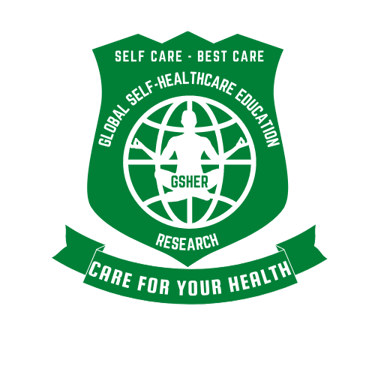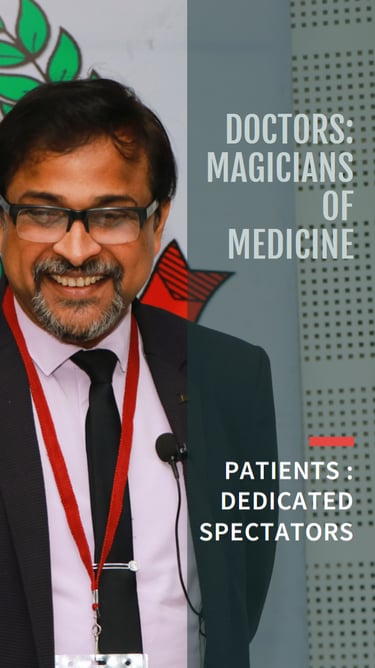The Importance of Self-Healthcare in Today's Healthcare Landscape
In recent years, the expectations placed on healthcare systems have significantly increased. Individuals anticipate immediate medical attention and personalized and effective care that promotes better health outcomes. While healthcare providers work diligently to meet these demands, there are inherent limitations to what medical institutions can achieve alone. This reality underscores the imperative for individuals to assume greater responsibility for their health through Self-Healthcare practices.
Self-healthcare encompasses a wide array of activities and approaches that individuals can adopt to maintain and improve their well-being. These practices include physical activities, healthy eating, mental wellness strategies, and preventive healthcare measures. By engaging in Self-Healthcare, individuals effectively complement the efforts of healthcare systems while fostering improved personal health management. This proactive attitude towards wellness can serve as a crucial bridge between clinical services and individual health needs.
Moreover, in a healthcare landscape increasingly burdened by chronic diseases and mental health challenges, the role of Self-Healthcare becomes even more pivotal. Individuals who prioritize Self-Healthcare are likely to experience not only enhanced physical health but also improved emotional resilience. This contributes to a holistic approach to well-being that cannot solely rely on external healthcare services. The integration of Self-Healthcare into everyday life promotes sustainability as individuals learn to manage their health independently.
Creating an Inner Environment for Well-Being
The concept of an 'inner environment' plays a crucial role in fostering health and well-being. This inner environment encompasses an individual’s mental and emotional state, which directly influences their overall wellness. Key elements such as tranquility, motivation, and purpose contribute significantly to nurturing a balanced inner landscape. Developing tranquility allows one to cultivate a serene mindset, essential for managing stress and enhancing emotional resilience. Techniques such as deep breathing, meditation, and guided visualization can aid in achieving this state of calm, which serves as a foundation for health optimization.
Motivation serves as a driving force that propels individuals toward Self-Healthcare. It encourages individuals to engage in healthy habits, such as regular physical activity, balanced nutrition, and adequate rest, which are integral to maintaining a sustainable lifestyle. Setting achievable goals plays a vital role in sustaining motivation. By breaking larger objectives into smaller, manageable tasks, individuals can create a sense of accomplishment, thereby reinforcing their commitment to personal growth and well-being. This goal-oriented approach ensures that the journey toward health becomes a rewarding experience rather than a chore.
The Power of Purpose-Driven Health
A clear sense of purpose plays a pivotal role in health management, serving not only as a motivator but also as a guiding light for individuals seeking to engage in Self-Healthcare activities consistently. Research has indicated that individuals who articulate a personal purpose often experience enhanced emotional resilience, which translates into a greater capacity to prioritize their well-being. This psychological connection between purpose and health underscores the importance of understanding one's motivations in accordance with health goals.
Individuals who possess a strong sense of purpose are better equipped to combat the daily challenges that may hinder their Self-Healthcare routines. They tend to approach obstacles not as insurmountable barriers, but rather as opportunities to affirm their commitment to health. For instance, a person who views their health journey as not just about physical fitness but also about setting a positive example for their children is likely to engage in activities that promote sustainable health. This aligns the person’s actions with their deeper values, fostering consistency and dedication.
Building a Sustainable Self-Healthcare Mindset
To cultivate a sustainable Self-Healthcare mindset, it is crucial to recognize Self-Healthcare as an ongoing commitment rather than a series of isolated tasks. This perspective emphasizes the importance of integrating Self-Healthcare practices into the fabric of daily life, thereby fostering long-term health and well-being. One effective strategy for achieving this involves setting realistic health goals that are achievable and measurable. By establishing specific, attainable objectives, individuals can create a clearer pathway toward actualizing their Self-Healthcare intentions.
Global Self-Healthcare Education and Research is leading the way in the field with its innovative "No Prescription Point" approach. Located in Chhend, Rourkela, this initiative serves as a one-stop destination for individuals seeking comprehensive information and counseling on both physical and mental health. By prioritizing self-empowerment and accessibility, it aims to demystify healthcare practices and equip people with the knowledge they need to take charge of their well-being. The facility offers a variety of resources, including workshops, informational sessions, and personalized counseling, all designed to promote a holistic understanding of health. In a world where healthcare can often feel intimidating, this initiative is breaking down barriers and encouraging a proactive approach to self-care and wellness.




